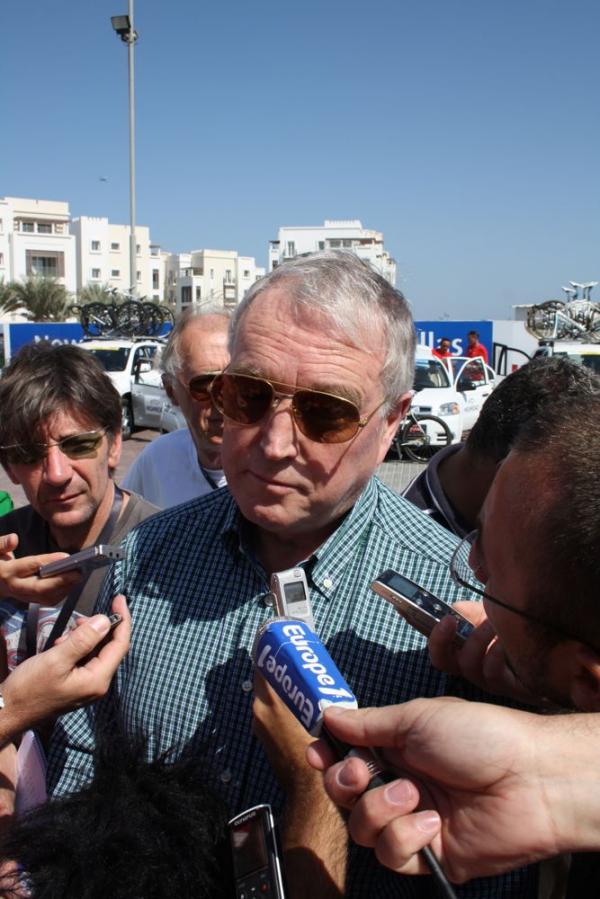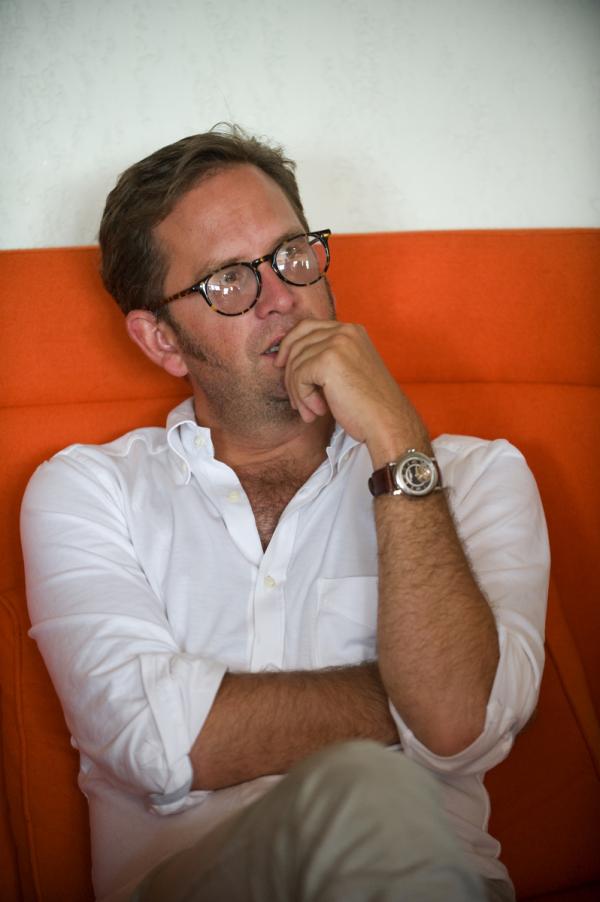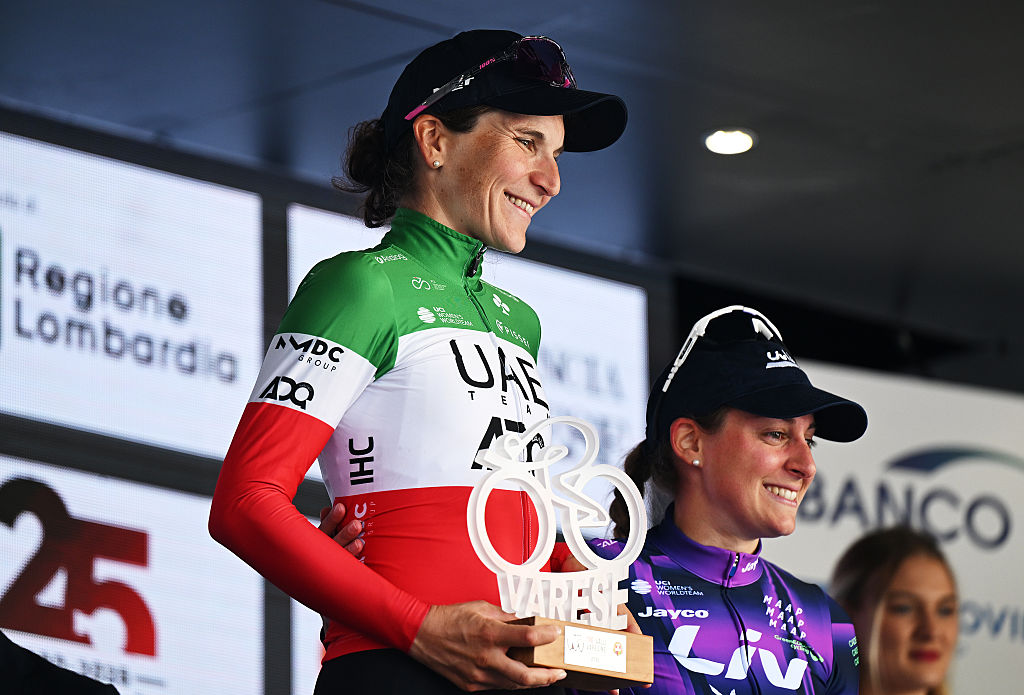McQuaid calls Beijing boycott threat over radio ban "blackmail"
Pro Cycling Council looking for increased doping penalties
The latest race content, interviews, features, reviews and expert buying guides, direct to your inbox!
You are now subscribed
Your newsletter sign-up was successful


The International Cycling Union's president Pat McQuaid met with the Professional Cycling Council (PCC) in Milan today, but the meeting went forth without Jonathan Vaughters of the teams' association (AIGCP) and Gianni Bugno of the international rider's association (CPA). The council discussed extending bans for doping, but it did not cover the ongoing controversial radio ban topic.
AIGCP opposed to UCI's two-way radio ban
Radio ban to go forward after UCI/AIGCP meeting
AIGCP threatens "drastic action" if radio ban is not repealed
Bugno calls on the UCI to reconsider race radio ban
European Cycling Union supports UCI over radio ban
The meeting was scheduled to hold talks regarding the highly contentious ban, but after the AIGCP and CPA banded together to threaten the UCI with a boycott of the Tour of Beijing if the organisation does not rescind its rule by May 1, McQuaid told the AIGCP to decide between the boycott and the talks, and the answer was clear.
In a letter to the AIGCP, of which Cyclingnews obtained a copy, McQuaid argued that the UCI has the final say in creating the rule, which progressively phases out radios in all races except the World Tour.
"(The) UCI has no requirement to consider itself bound by input from a particular stakeholder in deciding on the governance of the sport of cycling but out of consideration and good governance, UCI welcomes and considers any input. ...
"Simply put: the system does not have to adequately represent the interest of the teams and their employees (interests which, by the way, conflict among these two at many times) - or of any other particular stakeholder, it has to represent the best interests of the sport which is primordial."
McQuaid called the AIGCP's position an issue of "blackmail" because the teams did not get what they wanted and have no power to veto the decisions.
He also accused the AIGCP and Vaughters of "satisfying the desires of some of your members to create a breakaway professional league", and asked the organisation to give up its threat or its invitation to today's meeting.
The latest race content, interviews, features, reviews and expert buying guides, direct to your inbox!
"While regretting their decision not to take part in today’s constructive discussion, particularly as regards the safety aspects of the issue, President McQuaid regretfully noted this new element of tension in the situation. It will not, however, change the UCI’s position on the subject," the UCI said.
Vaughters told Cyclingnews that the radio ban itself is not what led to the "tension", but the lack of input from the sport's stakeholders. While the PCC contains representatives of the teams, race organisations and riders, it does not have any real power to influence the UCI's management committee, which sets the rules.
"The radio rule was announced at the 2009 world championships in Mendrisio. I spent nine hours in a PCC meeting and the radio rule never once came up. The next morning I read about the new radio rule and I couldn't believe it - I was accused of being the UCI's doormat because people couldn't understand why it had gone through. But I can attest, it never was brought up in that meeting or any of the three previous ones.
"We've been pushing back at the UCI privately since that time, but have only recently decided as a group to go public with our objections. The teams are unified more than ever," Vaughters said.
As far as McQuaid's assertions that there are elements in the sport looking to form a "breakaway league", Vaughters said, "I don't think there is anybody looking to replace the UCI as the governing body of the sport. There have certainly been complaints and discussions on this subject since 2004, but is there any move to replace the UCI? No. To improve the governance of our sport? Certainly."
PCC looks for increased anti-doping penalties
The PCC voted to recommend a four-year ban for doping positives "involving a serious substance", up from the current two years, and is also looking into introducing a "system of penalties to be applied to teams looking to take on a rider returning to cycling after a period of suspension for a doping offence", the UCI's press release stated.
McQuaid has long advocated for extended bans, even lifetime sanctions for doping cases. After the EPO positives of Stefan Schumacher and Bernhard Kohl in the 2008 Tour de France, McQuaid said, "I have said before that I would like to see them out of the sport for good. That is purely on a personal level.
The UCI must follow the World Anti-doping Agency's code, which now gives options for up to a four-year ban for aggravated doping offences.

Laura Weislo has been with Cyclingnews since 2006 after making a switch from a career in science. As Managing Editor, she coordinates coverage for North American events and global news. As former elite-level road racer who dabbled in cyclo-cross and track, Laura has a passion for all three disciplines. When not working she likes to go camping and explore lesser traveled roads, paths and gravel tracks. Laura specialises in covering doping, anti-doping, UCI governance and performing data analysis.
